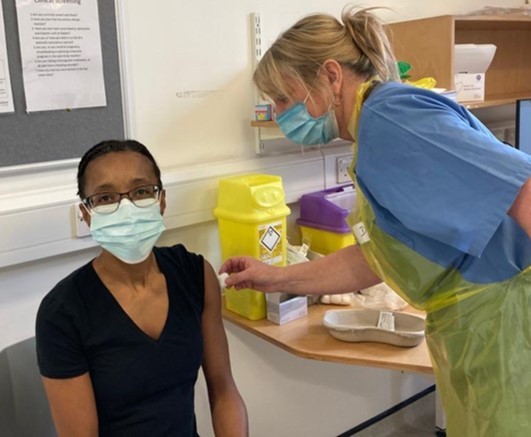Isabelle Wilson-
Confidence in vaccinations in the post-pandemic group is considerably lower than in the pre-pandemic group, according to researchers.
Despite the general success of vaccines, confidence in vaccines are much lower now than they were during the height of the pandemic. Although many people had faith in vaccines during the pandemic, there was plenty of scepticism even then among both the British and the U.S public. That confidence has plummeted further as time has passed, with a large percentage of the public holding the view that the call for vaccines had an ulterior motive.
Long before the development of vaccines was complete. Scepticism about vaccines were rife, with the internet awash with conspiracy theorists pedalling multiple views about vaccines, and its apparent danger to the public. Proposals for vaccines to be given to children in schools sparked even more controversy, with many parents expressing deep worries about the idea of vaccination.
Amid all the fears and controversy, a majority of the British and American public took the vaccine to stay safe and take no chances. A large number took the vaccine to allow them to be able to travel abroad without the restrictions faced by unvaccinated people. The issue grew very divisive in many parts of the world, but many countries have since relaxed their stringent requirement of travel; the United States among the few still insistent on vaccination for travel into the country.
Professional academics at The CONVERSATION conducted broad research aimed at assessing the public feelings about vaccination post pandemic through online surveys carried out in November 2019 and January 2022, involving more than 1,000 adults. The survey responses revealed the fall in public confidence about vaccination.
Researchers discovered a drop in vaccine confidence was observed regardless of participants’ age, gender, religious beliefs, education and ethnicity.
One notable difference between the two surveys was that while in the pre-pandemic group middle-aged participants were significantly more vaccine-hesitant than their younger peers, this was not the case for the 2022 group.
Researchers discovered that participants who held religious beliefs were significantly more vaccine-hesitant than atheist and agnostic ones. Meanwhile, respondents from black and Asian backgrounds were more hesitant than those of white ethnicity. There was no association between gender and vaccine confidence in either survey.
Researchers found that vaccine confidence was mainly influenced by the COVID pandemic, and a desperate need to stay safe. Researchers pointed out that although vaccines carry a very small risk of serious side-effects, these risks are minuscule compared with the damage caused by the diseases they protect against.
Many cynics of the vaccination drive were unconvinced about its safety, citing reports of many people who had died from being vaccinated amid rumours that many such instances were being hidden
Researchers have recommended more education from governments and public health services in schools, but also among adults, particularly those with caring responsibilities, such as parents, carers and healthcare workers.




